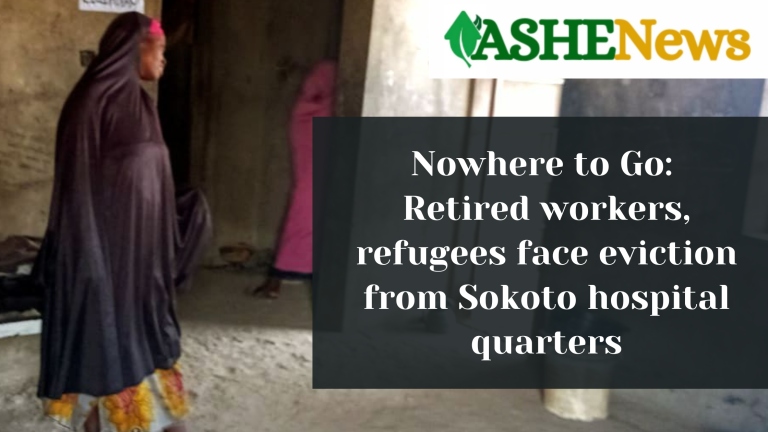The hospital quarters at Wurno and Binji General Hospitals were meant to house the medical personnel working tirelessly to save lives. Instead, over the years, they have become a refuge for retired staff, displaced persons, and those with nowhere else to go. But now, these residents are facing an uncertain future.
The Sokoto State Commissioner for Health, Dr. Faruku Umar Abubakar Wurno, had last week issued a two-week ultimatum for unauthorized occupants of staff quarters within hospitals across the state to vacate the premises or face eviction.
He gave the directive during an unscheduled inspection visit to General Hospitals in Wurno, Tangaza, and Binji Local Government Areas.
According to the Commissioner, many of these quarters are currently occupied by non-staff, who are depriving active healthcare personnel of essential accommodation within hospital premises. He pointed that providing hospital staff with on-site housing is crucial for ensuring efficient service delivery and prompt medical attention for patients.
While the policy aims to address the dire shortage of medical personnel in these hospitals, it is also uprooting people who have built their lives within these walls—people who have nowhere else to turn.
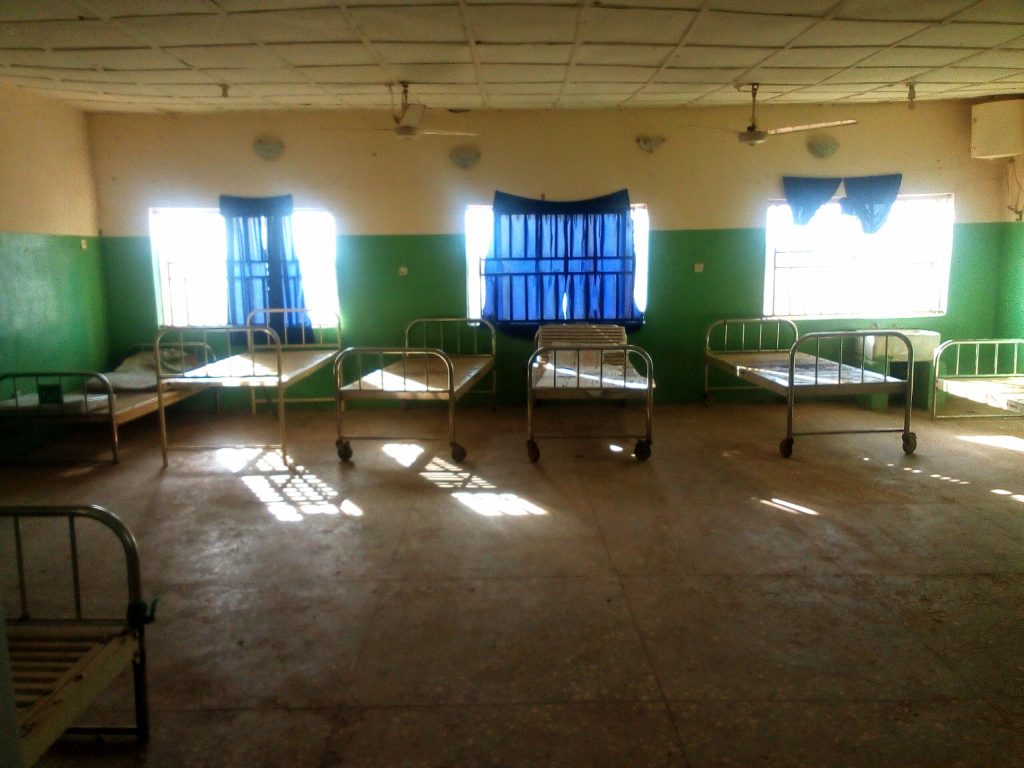
ASHENEWS Reporters visited Wurno and Binji General Hospitals to find out how the non-staff residents feel about the Commissioner’s order.
The struggles of hospital staff
At Wurno General Hospital, a senior official who pleaded anonymity painted a grim picture of their working conditions. According to him, the hospital, with its three wards, operates with only two doctors, 12 midwives, and 20 nurses.
“The workload is too much for us, and when emergencies strike— the workload is too much for us to handle.
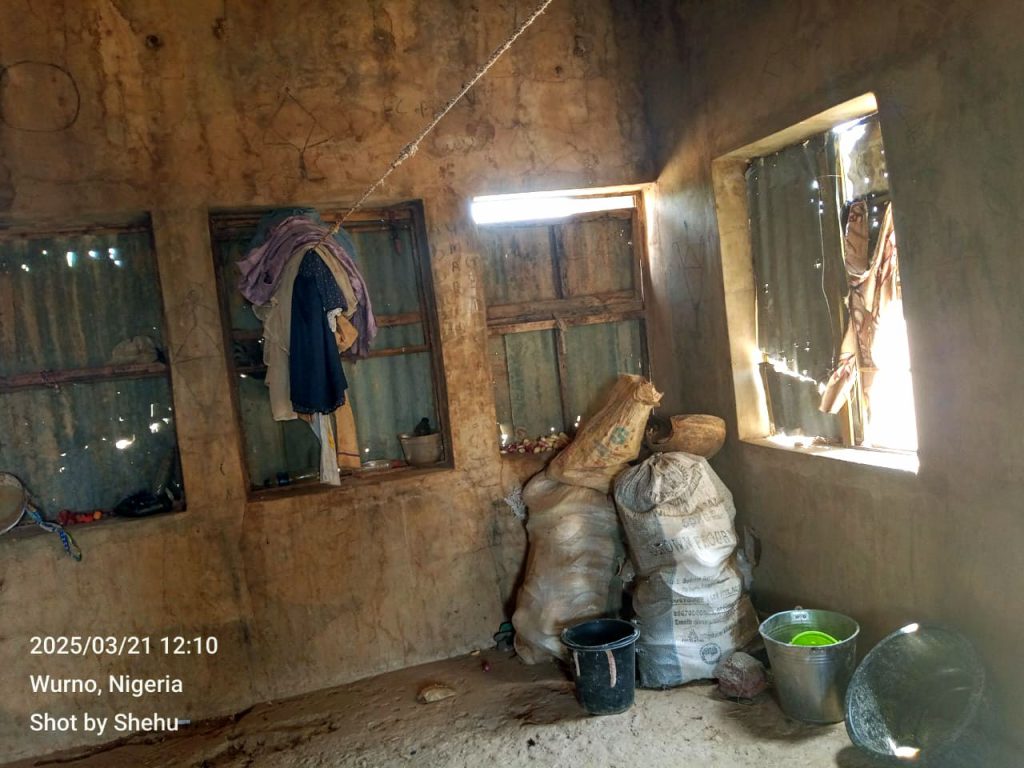
“When bandits attacked Wurno in 2019, we had to call doctors and nurses from other places because there were too many patients, and we couldn’t treat them all by ourselves.
“Last year, there was an accident where a trailer hit a 16-seater bus, and all the injured people were brought to our hospital. We were too few to handle all the patients, so we had to ask for more help. It would be better if we didn’t always need to ask for help, but we can’t manage with the small number of staff we have.”
Yet, despite their vital roles, many of the hospital workers have no place to stay in the quarters meant for them.
“The Commissioner came and ordered that refugees, retired staff, and non-staff should leave the staff quarters because there is not enough space. This is true, as even I don’t have a room there.

“When I started working at the hospital, I was told that my room had already been taken by someone else, and they had even spent money fixing it. So, I have no right to ask for the room back, which is unfair. Because of this, I had to rent a house about five minutes away from the hospital.
“A midwife was sent to us last month, but she has not shown up yet. If she does, she will also have to rent a house in town, which is about a five to six-minute drive away. In case of an emergency, it will take her that long to reach the hospital.
“However, if there were enough space in the staff quarters, it would take her less than two minutes to get here in times of emergency. The truth is, fewer than four workers actually live in the staff quarters.
“Most of the people living there are retired staff, non-staff, or refugees from the 2019 bandit attack. We are really struggling because there is no space for the workers who are supposed to be staying there”, the health official lamented.
Read Also: Sokoto govt issues 2-week ultimatum for non-staff to vacate hospital quarters
Other staff bemoaned how the shortage of housing forces makes emergency response slower.
Nowhere to go
Wurno General Hospital has 10 self-contained apartments in its staff quarter, which are all occupied. ASHENEWS spoke to some of the non-staff, retired staff, and refugees living in the Wurno General Hospital quarters.
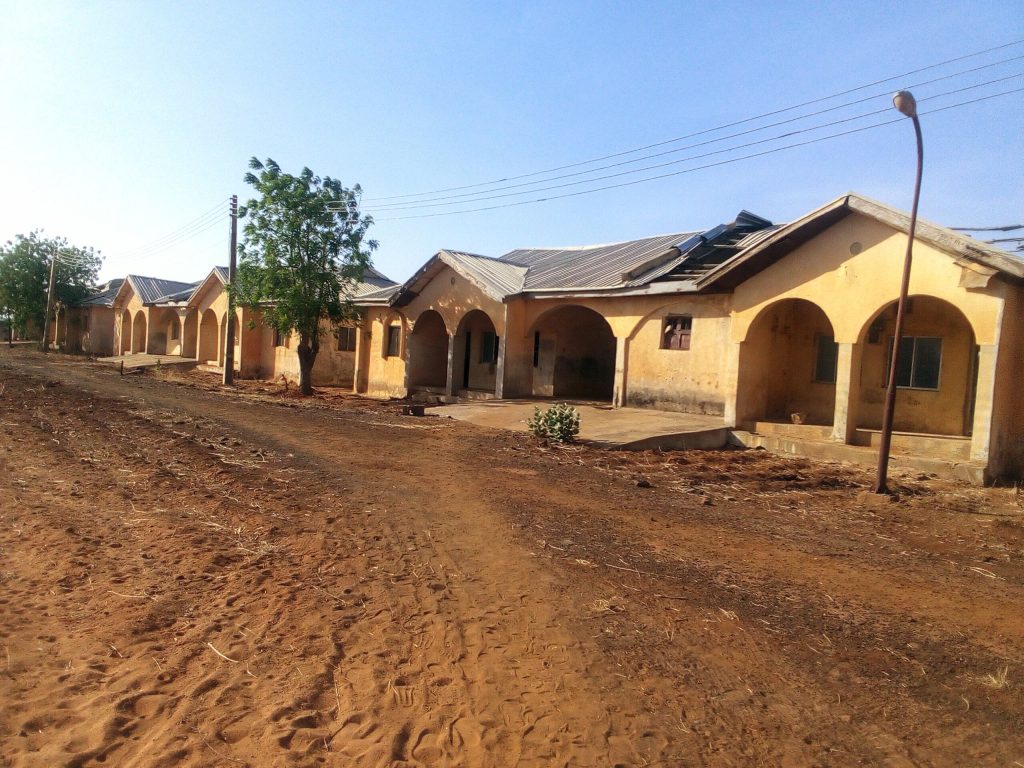
For the non-staff residents, the directive has left them anxious and desperate. Many of them have lived in the quarters for years—some even decades.
Mr. Buba, a retired pharmacy staff member, knows he has to leave, but his hands are tied. “I retired in 2023, but I haven’t received my pension yet. I can’t afford to move out when I haven’t been paid.”
Without a pension, he wonders how he will afford rent, even though he has a house in Sokoto. As he said he still offers his services to the pharmacy department of the hospital. “Once I leave, I’ll have to find a place to stay from Monday to Friday because I can’t commute every day.”

“The Commissioner told us to leave the staff quarters because there is not enough room for the new staff they promised to send. But they forget that most of us haven’t been paid our pensions, and that is why some of us are still living in the quarters”, he pointed out.
Mrs. Amina Bako, another retired staff member, has a different reason for staying. She told ASHENEWS that she dedicated over 36 years to Wurno General Hospital before a severe stroke left her hospitalized. She still depends on the hospital for medication.
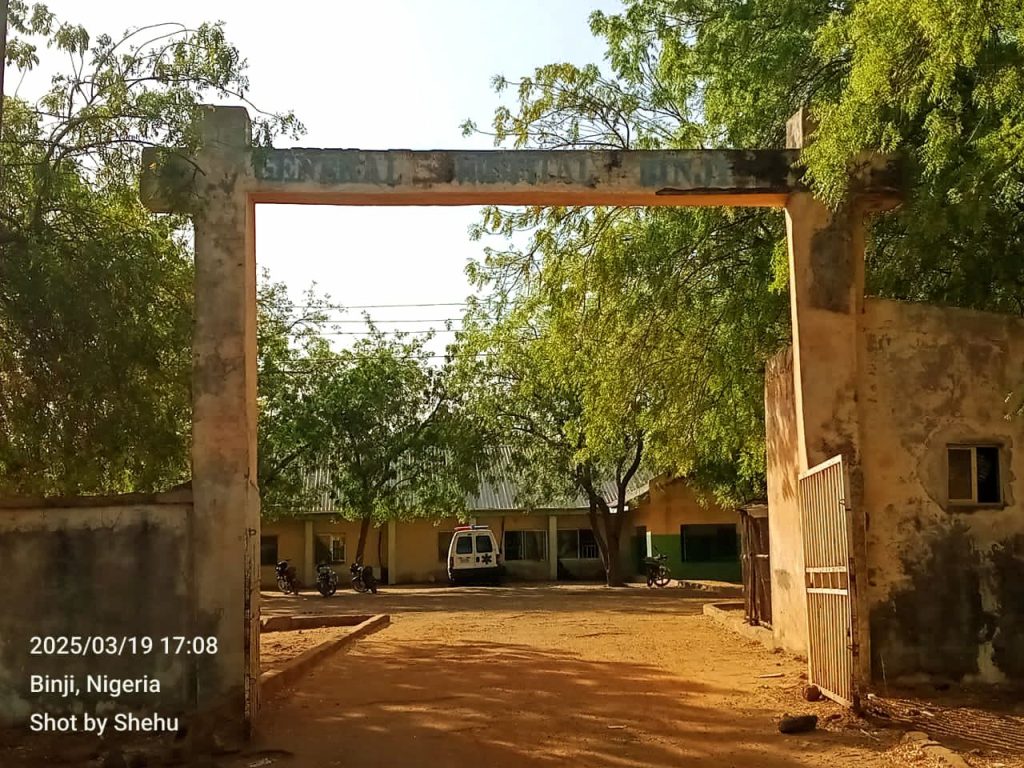
“I’ve been here since I started working at this hospital over 36 years ago. I retired six years ago, but I stayed because of health reasons. I had a stroke due to severe hypertension and had to be hospitalized in Sokoto.
“After I recovered, I returned here to stay for my medication. I visit the hospital regularly to collect my medicine whenever my condition worsens. The directive of the government is respected and am ready to leave after Sallah. I was already planning to move before they spoke to me.
“I’m from Wurno and I have houses in both Wurno and Sokoto, so I have no issues with their decision. I worked at this hospital for over 36 years, and the government has given me my pension and benefits, so I don’t mind leaving. But I have lived here for decades. It is not easy to just walk away.”
The forgotten Refugees
Among those being asked to leave are internally displaced persons (IDPs) who fled for their lives after bandit attacks. Mrs. Saratu Buhari is one of them. When her village along Isah Road was attacked, she lost everything. She tried living with her parents, but it wasn’t sustainable. Eventually, she was allowed to move into an abandoned hospital quarter.
“I’m not a staff here; I’m an internally displaced person (IDP). Bandits attacked our village along Isah Road, killing many people and forcing others to flee.
“Afterward, I decided to return to my parents’ house. I stayed there for a few months, and my husband suggested I look for a house to rent. There was no suitable one, so some people advised me to ask if I could stay in these empty quarters. I was hesitant but asked the then CNO, and he said it was fine.
The house was in bad condition, with no doors, windows, or roof. It was full of snakes and waste. I used my money to fix it up and moved in with my children. Now, we’ve been told to leave, and I don’t know where to go with my children.”
Mrs. Luba has a different tragedy. Her husband, a hospital watchman, died seven years ago, leaving her alone with three children. They let her stay in the quarters, and she has remained there ever since.
“”I’ve been living here for about 12 years, since my husband started working here. Before that, we rented a house, but later we asked for this hospital house. My husband passed away 7 years ago, leaving me with three children.
They’ve now asked us to leave, and I don’t know where to go. I have stayed here hoping my two daughters would get married first, so I can remarry. I am asking the government to let me stay until my daughters are married”, she pleaded.
The reality at Binji Hospital
Unlike Wurno, Binji General Hospital’s quarters are not even fully habitable. Out of six self-contained apartments, only one is in good condition. The rest have broken ceilings, missing roofs, and no doors or windows.
ASHENEWS spoke to a senior health official at Binji General Hospital, who explained that no non-staff members are staying in the staff quarters because all the apartments are in poor condition.
He disclosed that he is the only one currently living in one of the apartments.
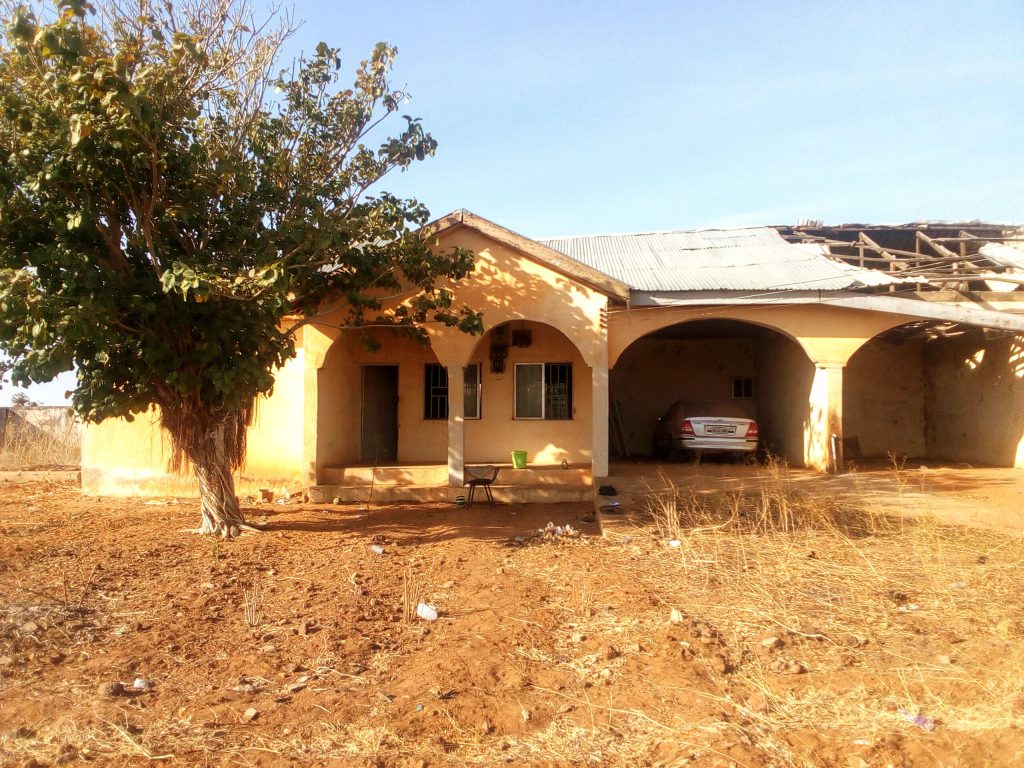
“Even the staff struggle to find a place to stay,” the senior hospital official admitted. “In our quarters, we only have six self-contained rooms, and most of the roofs are in bad condition. That is why the Commissioner promised to renovate the quarters for us.
“There are no non-staff members in our quarters because the housing is not enough for even the staff. Our staff work in two shifts. One shift is from 6:00 a.m to 4:00 p.m, and the other is from 4:00 p.m to the next day. This is because many staff members live far away in Sokoto, which is far from Binji.”
The hospital itself is overwhelmed. With only two doctors, six midwives, and six nurses, they work around the clock, sometimes treating accident patients without a doctor on duty.
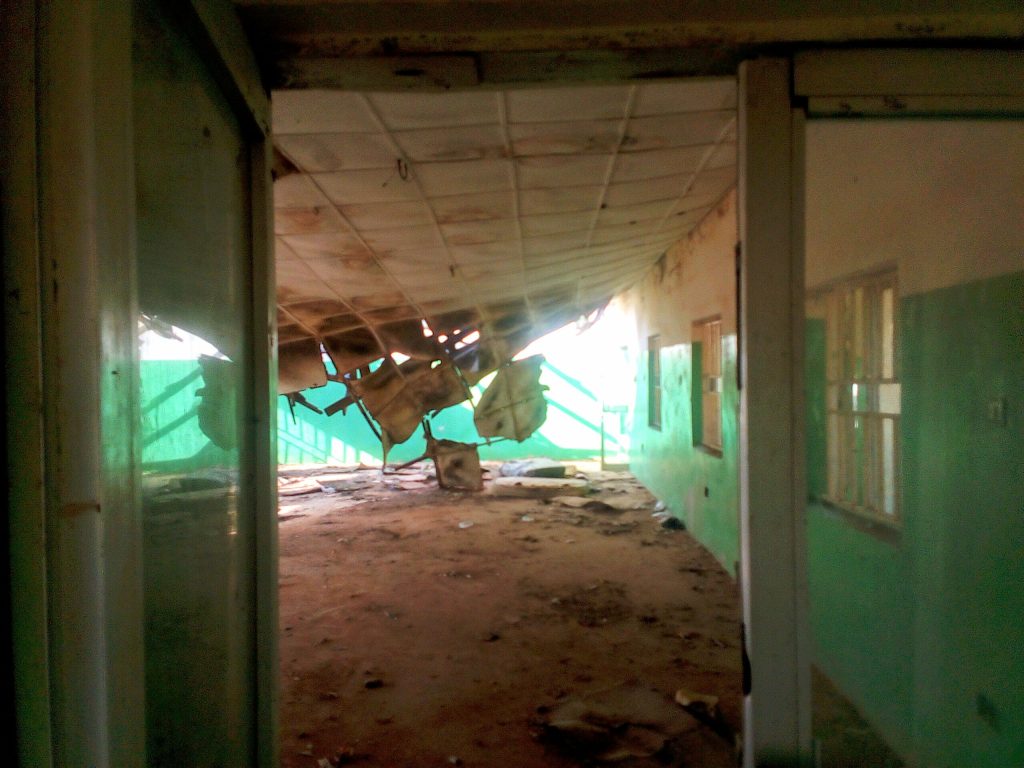
Pregnant women used to be seen only once a week, but after the Commissioner’s visit, that has increased to three times a week—though the staff remains stretched thin.
The senior health official further said, “The doctor on duty has to cover 24 hours due to the shortage of staff. We would be very happy if the government could help by sending more staff and renovating the wards that are in poor condition.
“Before, we treated pregnant women only once a week because of the staff shortage, but after the Commissioner’s visited, he told us to increase it to three times a week. Now, we attend to pregnant women three times a week at Binji General Hospital.”
Policy vs. Humanity
The Sokoto State government’s decision to clear out hospital quarters for medical workers is understandable. More doctors and nurses are desperately needed, and they should have a place to stay. But this directive is not just about policy—it is about people.
The Sokoto State government’s directive for non-staff to vacate hospital quarters has significant developmental implications, affecting both those living in these houses and the broader community.
According to a Development Analyst in Sokoto, Isah Ahmed, this order would increase housing crisis for the retired staff, internally displaced persons (IDPs), and widows currently residing in hospital quarters.
“This forced displacement could lead to homelessness, increased financial burdens, or relocation to informal settlements with poor living conditions. It would worsen the current economic hardship on the people especially for te retired staff who have not received their pensions. Evicting them without resolving their financial entitlements would push them into economic hardship.”
He further noted that forcing the IDPs out without alternative housing options may worsen their vulnerability, exposing them to new security risks.
The Development Analyst advised the government that Instead of solely focusing on evictions, the government should prioritize renovations and expanding staff quarters. He pointed that development policies should be people-centered.
“If evictions are carried out without proper resettlement plans, it could damage public trust in the government. This could lead to resistance and negative perceptions of state policies, affecting future health and social interventions.
“Instead of an abrupt two-week ultimatum, authorities should provide a structured relocation plan with alternative housing arrangements, especially for the vulnerable. While retired staff should receive their pensions before being asked to vacate, allowing them to secure alternative housing.”
The retired staff members who gave their lives to the hospital. The widows with nowhere to go. The refugees who rebuilt their lives from nothing. For many, this is not just about housing. It is about survival. And as the eviction deadline approaches, one question remains: where will they go?


